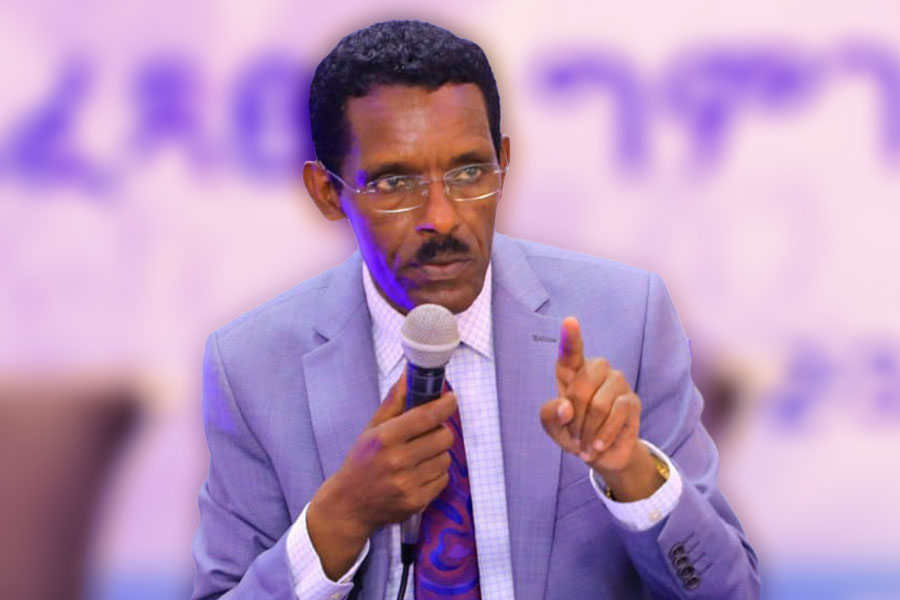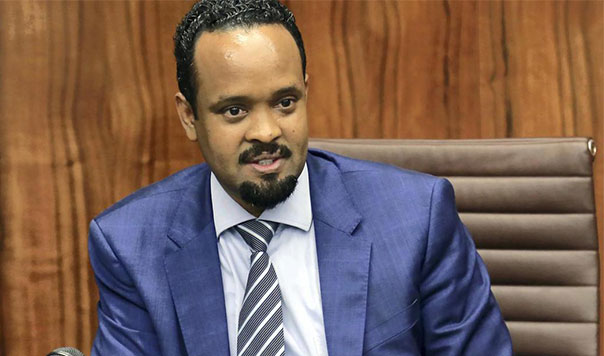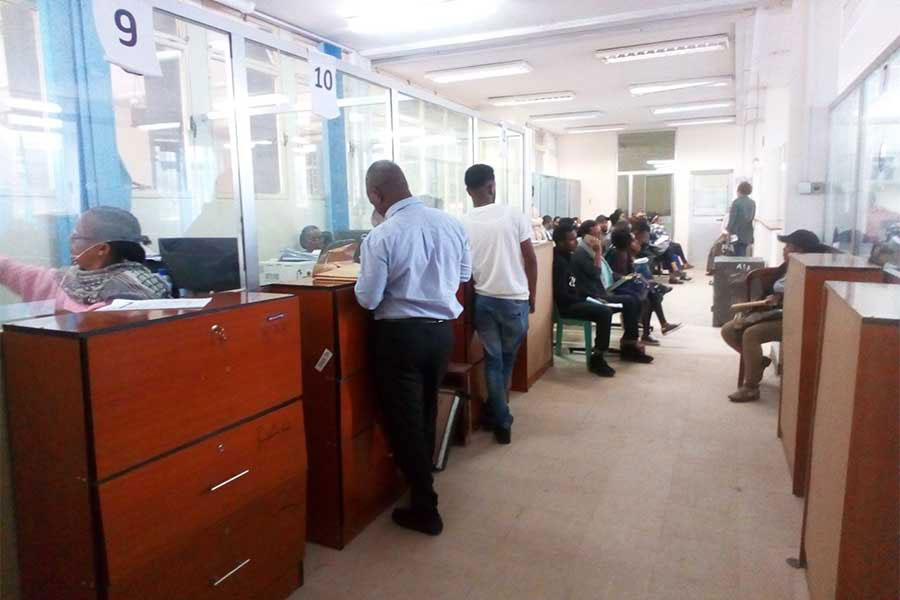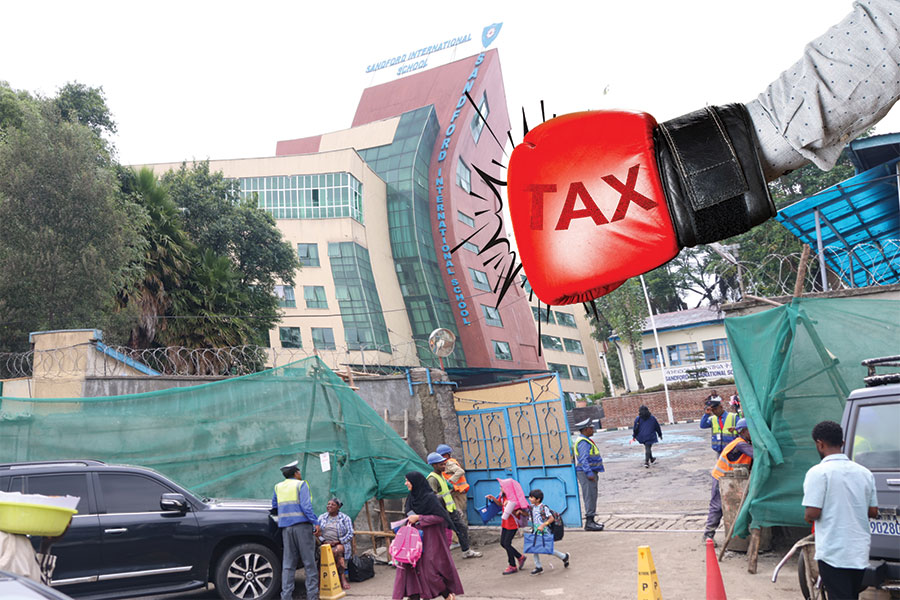
Fortune News | Mar 16,2024
Jun 8 , 2019
By FASIKA TADESSE ( FORTUNE STAFF WRITER )
 Ahmed Shide, minister of Finance.
Ahmed Shide, minister of Finance. The new austere budget bill proposed for the coming fiscal year aims to cover three-quarters of the 386.9 billion Br budget from domestic tax revenue.
Approved by the Council of Ministers yesterday, the bill, which is proposed by the Ministry of Finance, was sent to parliament for legislation.
The proposed federal budget bill allocated 130.7 billion Br for capital expenditure, 109.5 billion Br for recurrent spending and 140.7 billion Br for regional block grants. The remaining six billion Birr is allocated for Sustainable Development Goals (SDG) projects.
The coming year’s capital expenditure has shown a 14.8pc increase from the current fiscal year, a 16.4 billion Br expansion. Recurrent spending also showed a 19.5pc rise or 17.9 billion Br in absolute figures. Subsidy for regional states witnessed a marginal expansion of 3.8pc, a 5.2 billion Br hike.
Considering the current fiscal year’s budget, the proposed budget does not have a significant increase, according to Alemayehu Geda (Prof.), a macroeconomist and a university professor with decades of experience.
“Given the inflation pressure in the economy, the budget isn’t expansionary,” Alemayehu told Fortune.
The 12-month moving average inflation rate of the country was 12.6pc as of May 2019, according to the latest Consumer Price Index from the Central Statistical Agency.
While preparing the budget bill, the Ministry prepared a five-year macroeconomic and fiscal framework, according to Ahmed Shide, minister of Finance, in statements made to parliament two weeks ago.
Approved by the Council of Ministers yesterday, the bill, which is proposed by the Ministry of Finance, was sent to parliament for legislation.
“We’ve also evaluated the budget utilisation of the current and the past fiscal year while preparing the current one,” he said. “The budget bill is prepared by prioritising water and roads infrastructure,” he added.
The Minister’s proposed budget is 11.5pc higher than the current fiscal year and 20.6pc higher than the budget that was allocated two years ago. The growth rate also remains modest considering the 52.3pc growth rate that was recorded 12 years ago, when the federal budget jumped to 45.7 billion Br from 30 billion Br.
Expressed in foreign currency, the budget stands at 13.4 billion dollars, a slight increase from this fiscal year’s budget of 12.6 billion dollars. It is almost the same as the 2017/18 financial year’s budget that was 13.3 billion dollars.
The government targets to cover 289.8 billion Br or 75pc of it from domestic tax revenues. The remaining balance of expenditures is expected to be covered by other non-tax sources, including foreign aid, loans and domestic investments.
For Alemayehu, the government’s plan of covering three-quarters of the budget from the domestic revenue seems unrealistic.
“It doesn’t consider the actual tax revenue collection of the government,” he said. “Knowing that the government wouldn’t collect the targeted revenue of the year, they should not plan to increase the share of domestic revenue as the source of budget.”
In the first 10 months of the current fiscal year, the Ministry of Revenues collected 160.4 billion Br from domestic tax out of the targeted 235.7 billion Br in revenue, only 68pc of the target.
For this budget year, the government targeted to cover 68pc of the budget with revenue generated from taxes. However, due to the gap in tax revenue collection, the country had a 77.1 billion Br budget deficit in the past 10 months. The first government plan for the budget deficit was 59.3 billion Br for the entire year.
Approved by the Council of Ministers yesterday, the bill, which is proposed by the Ministry of Finance, was sent to parliament for legislation.
In this fiscal year, parliament approved 33.99 billion Br in supplementary budget for the government.
With the current capacity of domestic tax revenue, the government could need a supplementary budget, according to Alemayehu.
The Finance Ministry expects the revenue collection of the country to go up by 20 billion Br to 30 billion Br after the ongoing tax regime reform is completed, according to Ahmed.
“We’re revising value-added and excise tax proclamations along with tax reforms to tax holiday and incentive privileges,” said Ahmed, “which all will increase government revenue and improve tax administration.”
Along with the tax regime overhaul, the government is working on economic reform, such as increasing the involvement of the private sector in the economy and replacing the state’s dominance. For this attempt, the government is in the process of partial and full privatisation of large and medium state-owned enterprises.
Ahmed also adds that the government will be focusing on controlling expenses in the coming fiscal year.
However, a macroeconomist with a wide range of experience believes that the spending devised in the budget document is unproductive, huge and inflationary.
“It shows that there is a bloated bureaucracy,” he said. “Despite the Auditor General’s report, the budget doesn’t properly allocate productive spending.”
The latest audit finding from the Office of the Auditor General shows that in the last fiscal year there was 1.6 million Br cash on balance, six billion Birr in uncollected receivable cash, seven billion Birr in uncollected tax revenue and seven billion Birr of uncleared expenditures in the government accounts.
The experts also warn the government to watch the debt level of the country carefully.
As of March 2019, the total outstanding debt expansion of Ethiopia stood at 26.9 billion dollars where servicing the debt cost the government nearly 1.5 billion dollars.
China is by far the largest creditor with 19.9 billion dollars in outstanding loans, followed by multilateral funds with 11.4 billion dollars. The 3.8 billion dollars in debt from international banks is also on the balance sheet of the country.
Alemayehu still believes that the country should search for a grant to escape from a budget deficit and supplementary budget.
However, he says that the grant has to be used for the procurement of essential goods like wheat instead of injecting it into the economy.
“If the grant is converted into local currency and injected into the economy it could cause inflation,” Alemayehu said. “In the long run, the country has to work a lot in building its capacity for revenue collection.”
As part of the ongoing reform for effective budget administration, three months ago the Ministry of Finance formed a 12-member public finance management advisory council that will facilitate government finance administration.
Reporting to the Ministry, the Council has two members from Addis Abeba University, five from the private finance sector, one non-governmental institution representative, a central bank official and two civil servants from the Ministry.
PUBLISHED ON
Jun 08,2019 [ VOL
20 , NO
997]

Fortune News | Mar 16,2024

Commentaries | Oct 04,2025

Fortune News | Mar 09,2024

Viewpoints | Mar 23,2024

Fortune News | Sep 24,2022

Radar | Feb 02,2019

Commentaries | Aug 03,2025

Fortune News | Aug 26,2023

Radar | Dec 14,2019

Commentaries | Jan 03,2021

Dec 22 , 2024 . By TIZITA SHEWAFERAW
Charged with transforming colossal state-owned enterprises into modern and competitiv...

Aug 18 , 2024 . By AKSAH ITALO
Although predictable Yonas Zerihun's job in the ride-hailing service is not immune to...

Jul 28 , 2024 . By TIZITA SHEWAFERAW
Unhabitual, perhaps too many, Samuel Gebreyohannes, 38, used to occasionally enjoy a couple of beers at breakfast. However, he recently swit...

Jul 13 , 2024 . By AKSAH ITALO
Investors who rely on tractors, trucks, and field vehicles for commuting, transporting commodities, and f...

Nov 1 , 2025
The National Bank of Ethiopia (NBE) issued a statement two weeks ago that appeared to...

Oct 25 , 2025
The regulatory machinery is on overdrive. In only two years, no fewer than 35 new pro...

Oct 18 , 2025
The political establishment, notably the ruling party and its top brass, has become p...

Oct 11 , 2025
Ladislas Farago, a roving Associated Press (AP) correspondent, arrived in Ethiopia in...